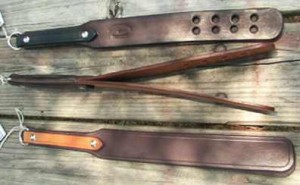Nothing Happened in Coronation
I lived in Coronation, an Alberta village in Canada, until I was 18. This is the 4th of 25
Coronation stories & essays.
Mr. Mills
They say nothing ever happened in Coronation but few people ever sat in on Mr. Mills’ fifth grade class, my home room teacher.
Mr. Mills, would gaze out the second-story window of our red brick schoolhouse as a car sped by and ask, “I wonder what that driver is going to do with his extra two minutes?”
Since Coronation had fewer than a thousand people, was a dozen blocks long, and the speed limit was 25 MPH, even the fastest driver in the world, if he were going anywhere in town, could not save more than 30 seconds by driving like a madman.
Mr. Mills and his wife traveled in the school summer holidays. His classroom lectures and observations were related to his journeys. He was the first person I ever knew who had been to Egypt.
He reported back to the class that the pyramids were so precisely constructed that you couldn’t wedge so much as a butter knife between their two-ton blocks.
(Later, I went to Cairo with a butter knife. But that’s a different story, even though it had its roots in one of Mr. Mills’ lectures.)

Mr. and Mrs. Mills travelled to Japan and returned with fascinating stories of riding on fast trains.
He told us that the trains were so crowded that when it rained, the authorities increased the number of passenger cars by 10 percent to accommodate the extra rain gear that commuters wore.
He said that there were “people packers” to jam everyone into the cars before the train left the station.
I thought this was hilarious and I couldn’t stop laughing. My laughter caused several of the other boys to laugh. Mr. Mills stopped the class to give them “the strap.”

The strap was a leather belt a yard long that was used to sharpen straight razors. After Mr. Mills strapped the bejesus out of my fellow miscreants, he cried.
I don’t know how I managed to escape the strapping. It may have had something to do with the fact that my parents and the Millses were friends.
Much later in life, I dated a Japanese gal and explained to her about the Japanese people packers and the extra trains to carry the commuters who wore rain gear.
She laughed and said that the reason the transit authorities added more passenger cars in the rain was because fewer people walked in wet weather. They took the train.
If Mr. Mills were alive now, he’d be about 150 years old. I wonder what he would think of the modern-day world.
What would he say about the oyayubizoku? This is the Japanese “thumb tribe” — a culture that uses cell phones and Palm Pilots and GPS devices and TV sets embedded into eyeglasses.
Members of the “thumb tribe” range from Flin Flon to Florida to Frankfurt. Everyone is connected with chips and uses their thumbs to key information into their gadgets. Gadgets that are too complex for many.
Right now they are working on all sorts of great gadgets for the future — gadgets such as a plane that will fly from Los Angeles to Japan in an hour. The X-43 features a “scramjet” engine that will hurl you across the heavens at 10 times the speed of sound.
On rainy days I wonder if they’ll add 10 percent more X-43 planes. I think about something Mr. Mills asked: “I wonder what the driver is going to do with his extra two minutes?”
Obviously the driver and his oyayubizoku passengers will save more than two minutes as they zoom halfway around the world.
So what will they do with that extra time?
Figure out how to go even faster and save more time?

Time.
It doesn’t matter how fast you go or what kind of gadgets you use. You still live about the same number of years as people did when the Bible was written centuries ago.
Three score and ten. That’s what Mr. Mills used to say.
He lived to be 100 but he never tried to save time. He hardly ever wore a watch and savoured spending lazy summer days on slow boats to China.
Like many I knew in Coronation, Mr. Mills and his wife seemed a trifle peculiar. The Millses collected salt and pepper shakers from around the globe. Well over a thousand sets of salt and pepper shakers. Their strange little house probably cost $5,000 in the 1950s. And, they probably spent as much on fancy wooden cabinets to hold those salt and pepper shakers. Each year they would take a week or so changing all the old salt and pepper in all the shakers for fresh salt and pepper.
Where did he get their money? It was simply a matter of priorities. Mr. Mills thought anyone who would spend extra cash for power windows in their cars was nuts. “I’d rather buy a boat ticket,” he’d say, “than new-fangled windows.”
Today Mr. Mills wouldn’t buy a Kindle or iPhone when he could purchase a ticket on a slow boat to China for the same price.
How do you start such a voyage? Beats me.
Mr. Mills never had the Internet. But he loved to read. He was a collection of discombobulated facts, salt & pepper shakers and an age that seems just an echo in a time where one could spend one’s life cranking car windows up and down.
See More: Travel Stories






